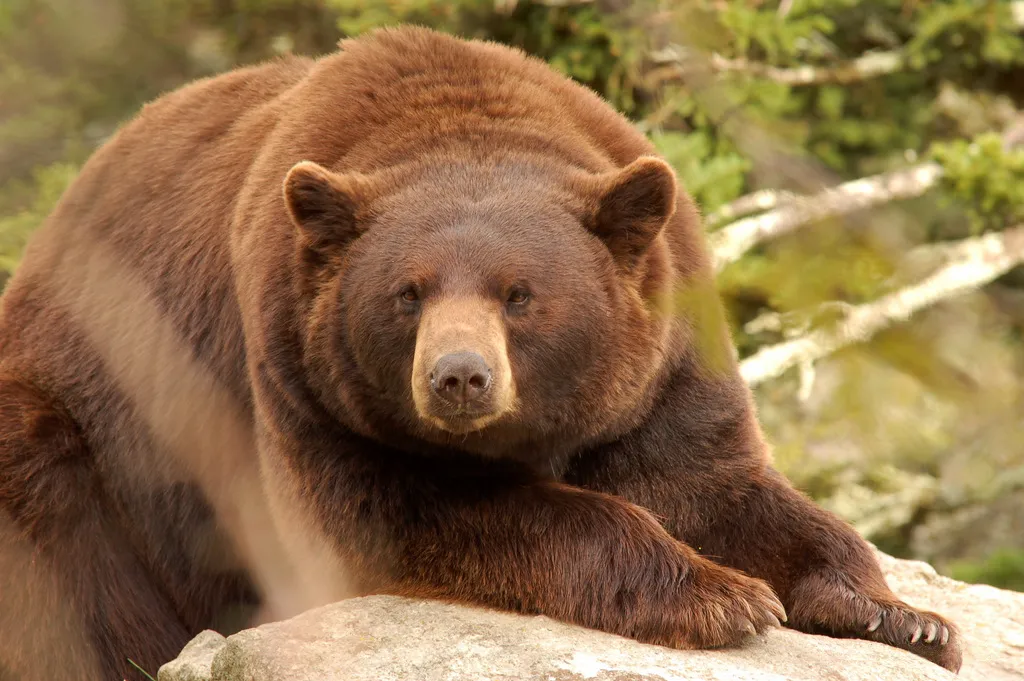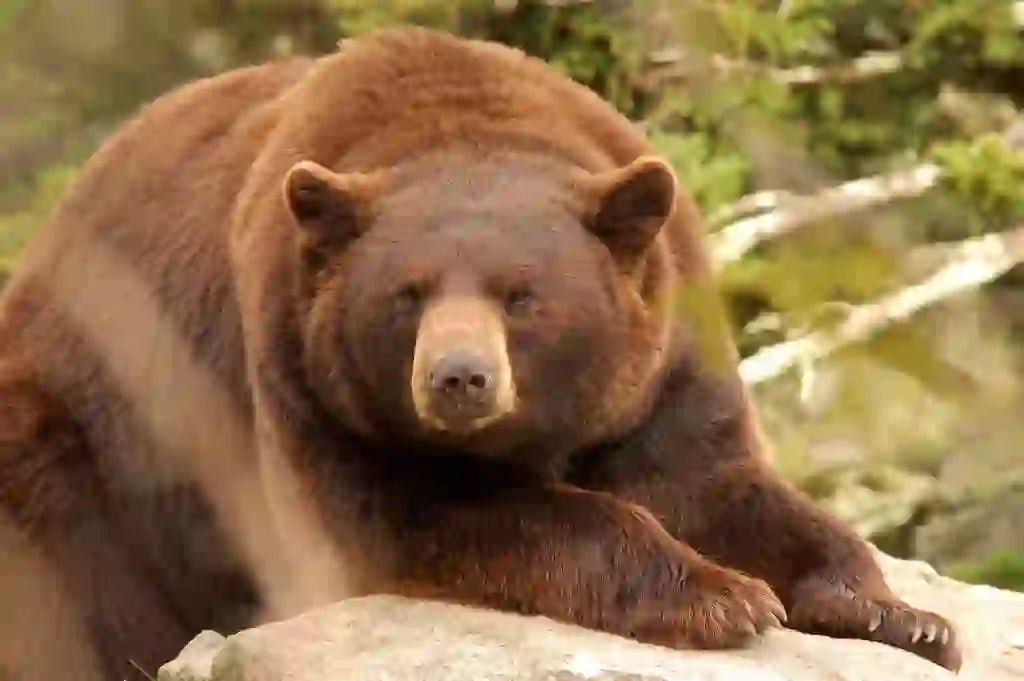
Cinnamon Bear
Cinnamon Bear
Cinnamon Bear
In the forests of the American West, lives the cinnamon bear, a bear with a coat as warm and inviting as its namesake spice. While belonging to the black bear family, they captivate people with their beautiful color. Let's explore the ecology of the cinnamon bear, the environment they inhabit, and their relationship with humans.
Cinnamon Bear Basic Infomation

| Property | Value |
|---|---|
| Scientific Name | Ursus americanus cinnamomum |
| Taxonomic Status | SUBSPECIES |
| Rank | SPECIES |
| Vernacular Names | Cinnamon bear |
| Kingdom | Animalia |
| Phylum | Chordata |
| Class | Mammalia |
| Order | Carnivora |
| Family | Ursidae |
| Genus | Ursus |
| Habitats | Forests and mountainous regions of the western United States |
| Conservation Status | Least Concern (IUCN 2023) |

Size
They are about 3.9 to 5.9 feet (1.2 to 1.8 meters) long, and males weigh around 198 to 400 pounds (90 to 180 kilograms). They are of average size among black bear subspecies. Females are smaller, weighing around 110 to 220 pounds (50 to 100 kilograms).

Lifespan
They live for about 15 to 20 years in the wild and up to 30 years or more in captivity.

Distribution
They are found throughout the western United States, mainly in the states surrounding the Rocky Mountains, such as Colorado, Utah, Wyoming, Idaho, Montana, and Washington.
Cinnamon Bear Q&A

What kind of bear is the cinnamon bear?
The cinnamon bear is a subspecies of the American black bear and is found in the western United States.
As their name suggests, they have a cinnamon-colored coat. Cinnamon is a spice derived from the bark of a tree belonging to the genus Cinnamomum. The fur of a cinnamon bear has a beautiful brown color, just like cinnamon. This color is said to be a result of a recessive gene. A recessive gene is a gene that is expressed only when an individual inherits two copies of it, one from each parent. Both parents of a cinnamon bear have black fur, but they also carry the gene for cinnamon-colored fur. Only when a cub inherits the cinnamon fur gene from both parents will it have a cinnamon-colored coat. Compared to other American black bears, cinnamon bears are smaller, have rounder faces, and larger skulls. This is thought to be an adaptation to their diet, which includes a lot of nuts and fruits found in the western United States. Cinnamon bears are omnivores, eating fruits, nuts, plant roots, insects, and sometimes even small animals and carrion. They are skilled climbers and can often be seen eating fruit or resting high up in trees. They are also known to hibernate during the winter, spending the cold months in tree hollows or dens dug in the ground until spring arrives.

What do cinnamon bears eat?
Cinnamon bears are omnivores, and their diet varies with the seasons.
In spring, they emerge from hibernation and eat grasses and buds. In summer, they enjoy a variety of berries, fruits, and insects. In the fall, they eat lots of acorns and pine nuts to store fat for the winter. They do not eat anything during hibernation. They have a very keen sense of smell and can detect the scent of food from miles away. They also use their strong forelegs to dig up roots and insect larvae.

[Quiz!] Are cinnamon bears baby black bears?
No, cinnamon bears are not baby black bears.
They are a subspecies of the American black bear, and they can be born to parents with black fur. Their cinnamon color is due to a recessive gene.

[Quiz!] Is it true that female cinnamon bears give birth during hibernation?
Yes, it's true! Female cinnamon bears give birth to 1 to 3 cubs during hibernation.
The cubs are very small and hairless when they are born. They are kept warm by their mother's body heat and feed on her milk. They emerge from the den with their mother in the spring.

[Quiz!] Are cinnamon bears dangerous to humans?
Cinnamon bears are very powerful animals and can attack humans.
However, they are generally afraid of humans and rarely attack proactively. If you encounter a cinnamon bear, do not approach or provoke it, and quietly leave the area. When entering their habitat, be cautious and do not leave food unattended or litter, as these actions can attract bears to human settlements.

[Quiz!] Are cinnamon bears endangered?
The cinnamon bear is listed as 'Least Concern' on the IUCN (International Union for Conservation of Nature) Red List.
This means that they are not currently considered endangered. However, their habitat is being impacted by human activities, including deforestation and urban development. Conservation efforts are underway to protect them, but further measures are needed.

Would you like to become a part of the 'Animalbook.jp'?
Turn your knowledge into Q&A and share it with the world. ※Publication will be activated after purchase. Let's share information together!
Cinnamon Bear Type of List

Characteristics of Cinnamon Bears
- Subspecies of the American black bear
- Found in the western United States
- Cinnamon-colored fur
- Small body and round face
- Large skull
- Omnivorous
- Hibernate
- Least Concern (LC)
Information
Congratulations! You are the first commenter!

Create Your Favorite List!
Cinnamon Bear
Save the animals you love! Build your own list to quickly revisit your favorites later.

Would you like to leave a comment?
※Please note: This is for the purchase of rights to post comments within the article.
Find Your Favorites!
Our shop offers a unique and attractive selection of goods themed around various animals.
Cinnamon Bear References
Cinnamon Bear Introduction of media used

Appalachian Encounters, CC BY 2.0, via Wikimedia Commons

Help Enrich Our Animalbook.jp with Your Media!
We are constantly looking to expand and enrich our Animalbook.jp with amazing photos and videos of animals. If you have any media that you'd like to share, please contribute and help us showcase the beauty and diversity of the animal kingdom. Your submissions will be credited and featured in our encyclopedia, reaching a wide audience of animal lovers.


















